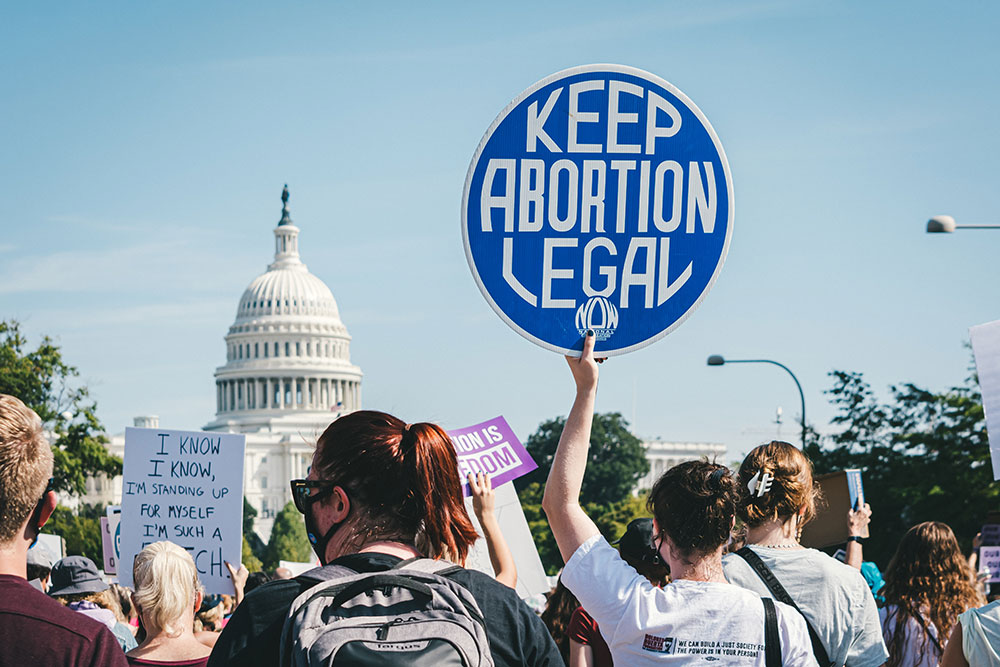After Supreme Court Ruling Overturned Roe v. Wade, Support for Abortion Increased
Support is highest among those who say they plan to vote in the midterm elections
Get all our news
This was an important dynamic to explore so as to see exactly how what is likely the most consequential policy decision made by the Court in 50 years affects public opinion.”
James Druckman
IPR political scientist

After the Supreme Court’s June 24 landmark decision in Dobbs v. Jackson Women’s Health Organization overturning Roe v. Wade, how did the announcement shift public opinion? And could it impact the 2022 midterm elections?
A national survey shows that Americans’ support for abortion increased overall after the Dobbs decision, and support is highest among individuals who say they are “very likely” to vote in November. The results highlight how the Dobbs decision could influence who shows up to vote in the midterm elections and who Americans would like to see control Congress.
"This was an important dynamic to explore so as to see exactly how what is likely the most consequential policy decision made by the Court in 50 years affects public opinion," IPR political scientist James Druckman said, who co-authored the report.
Between June 8 and July 6, researchers from Northwestern, Harvard, Rutgers, and Northeastern universities surveyed 24,141 participants about their support for abortion across nine different scenarios, such as when a pregnancy is caused by rape and once a fetal heartbeat is detected. They surveyed participants before and after the Dobbs decision was announced, with 16,265 responding before and 7,876 after.
Support for abortion from pregnancies caused by rape and those where the fetus is likely to have serious health problems or birth defects had the largest increase of the nine scenarios, jumping 5 percentage points. Prior to the decision, 45% more people supported than opposed abortion for pregnancies caused by rape, but after the decision, 50% more people supported abortion.
Support increased by 8 percentage points in pregnancies caused by rape and 7 percentage points where the fetus is likely to have health problems among those who said abortion was “extremely important.” Support also rose in cases where the mother’s life was at stake, rising from 61% to 64% in favor abortion in such cases, and falling from 11% to 10% for those who are against it.
Another recent report by the COVID States Project shows that the majority of Americans support life-saving abortion care and abortion in cases of rape. The survey also reveals that support wanes after fetal viability, and a smaller, but sizeable group of Americans struggles with the issue in other abortion scenarios.
The latest survey finds that respondents in the 13 states with “trigger laws,” imposing restrictions or prohibiting abortion following the overturning of Roe v. Wade, had greater support for abortion after the ban, rising between 3 and 9 percentage points across the nine scenarios. Support among those who said abortion was “extremely important” saw increases as high as 14 percentage points in the scenario where staying pregnant could harm a woman’s health and 12 percentage points (from 34% to 46%) for pregnancies that could result in a woman’s death or that were caused by rape (from 24% to 36%).
When it comes to the 2022 midterm elections, the researchers find that individuals who consider abortion to be an extremely important issue are more likely to support Democrats maintaining control of the House and the Senate. After the Dobbs decision, there was a slight increase in support for Democrats among those individuals, moving from 48% to 52%. The researchers also saw greater support for Republicans winning control of Congress among individuals who did not consider abortion to be an extremely important issue, rising from 52% to 54% for the House and from 53% to 54% for the Senate.
Druckman and his colleagues find little change across demographic groups reporting that they were “very likely” to vote in November. Men, rural residents, and those with a high school education or less were the exception, saying they were less likely to vote in the midterm elections. Their support dropped between 6 to 9 percentage points, or from 63% to 56% for men, 57% to 48% for rural residents, and 44% to 35% for those with a high school education or less, after the Dobbs decision.
"This is an interesting finding insofar as this constituency is often seen as Trump’s base and that the decision may have demobilized them could have electoral implications," Druckman said.
James Druckman is the Payson S. Wild Professor of Political Science and IPR associate director and fellow.
This research is supported by the Peterson Foundation.
Photo credit: Unsplash
Published: July 21, 2022.


